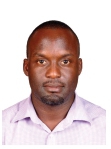Services on Demand
Article
Indicators
Related links
-
 Cited by Google
Cited by Google -
 Similars in Google
Similars in Google
Share
SAIEE Africa Research Journal
On-line version ISSN 1991-1696
Print version ISSN 0038-2221
SAIEE ARJ vol.111 n.4 Observatory, Johannesburg Dec. 2020
SPECIAL ISSUE - EAST AFRICA
Dear readers,
This is a Special Issue of the SAIEE Africa Research Journal (ARJ), containing papers sourced from East Africa. This Special Issue for East Africa is a result of a cooperation agreement between the IEEE (through the Ad Hoc Committee on Africa Activities (AHCAA)) and SAIEE. The cooperation seeks to solicit more submissions to the SAIEE ARJ by focusing on the different geographical areas of Africa.
In this Special Issue, we considered papers where at least one author is based at an Institution in East Africa, or where the paper uses East Africa as a case study. The papers have gone through a rigorous peer-review process, where each paper was reviewed by two independent expert reviewers. From this process, two papers have been accepted for this Special Issue for East Africa.
The first paper, authored by Ronald Kizito et al., describes a Luganda text normalization module that is a critical component of a Luganda Text to Speech system. Luganda is a major language mainly spoken by people in Central Uganda. The authors used the rule-based approach for detection, classification and verbalization of Luganda text. The module was tested and achieved average detection and normalisation rates of 82% and 77.7% respectively.
The second paper, authored by Sheila M. Mugala et al., discusses how developing countries can harness the technology of unmanned aerial vehicles in various sectors. It discusses potential applications in agriculture, disaster management, delivery, surveillance of transmission lines, and network coverage. It also looks at interventions by some African governments from a policy perspective towards the development of this technology in their countries. Note that the review process of this paper was handled by Drs. Mugume and Busogi.
Guest Editors

Dorothy K. Okello (S'94-M'16) received the B.S. degree in Engineering (Electrical) from Makerere University, Kampala, Uganda in 1992. She received the M.S. degree in Electrical Engineering from the University of Kansas, United States in 1995 and the PhD degree in Electrical Engineering from McGill University, Canada in 2004.
She is Dean of the School of Engineering at Makerere University. She is also the Principal Investigator of netLabs!UG, a telecommunications and networking technologies research center based at Makerere University.
She is a member of the Uganda Institution of Professional Engineers (UIPE) where she served as President from 2016 to 2018. Dr. Okello served on the 2016-2019 IEEE Ad Hoc Committee for Africa (AHCA). Her research interests are in rural broadband connectivity, with a focus on wireless communications and networking and societal technology.
Email: dkokello@cedat.mak.ac.ug.

Edwin Mugume (S'12-M'17) received the BSc degree in Electrical Engineering (First Class Honors) from Makerere University, Uganda in 2007. He received the MSc degree in Communication Engineering (Distinction) in 2011 and the PhD in Electrical and Electronic Engineering in 2016, both from the University of Manchester, United Kingdom.
Since 2017, he has been with the Department of Electrical and Computer Engineering, Makerere University in Kampala, Uganda. He is a Senior Researcher with netLabs!UG, a telecommunications and networking technologies research center based at Makerere University. He is also an Instructor at Carnegie Mellon University Africa in Kigali, Rwanda. His research interests include energy efficient dense HetNets, 5G cellular technologies, UAV-based cellular systems, and applications of machine learning in wireless networks and systems.
Email: edwin.mugume@cedat.mak.ac.ug.

Moise Busogi received the B.S. degree in Industrial and System Engineering from Korea Advanced Institute of Science and Technology (KAIST), Republic of Korea, in 2011. He received the PhD degree in System Design and Control Engineering from the Ulsan National Institute of Science and Technology (UNIST), Republic of Korea, in 2017. From 2017 to 2019, he worked as Research Associate at the Center for 3D Advanced Additive Manufacturing, in Ulsan, Republic of Korea. He is currently a Scholar-in-Residence at Carnegie Mellon University Africa. His research interests include complex system modeling, operations research, and machine learning.
Email: mbusogi@andrew.cmu.edu.














